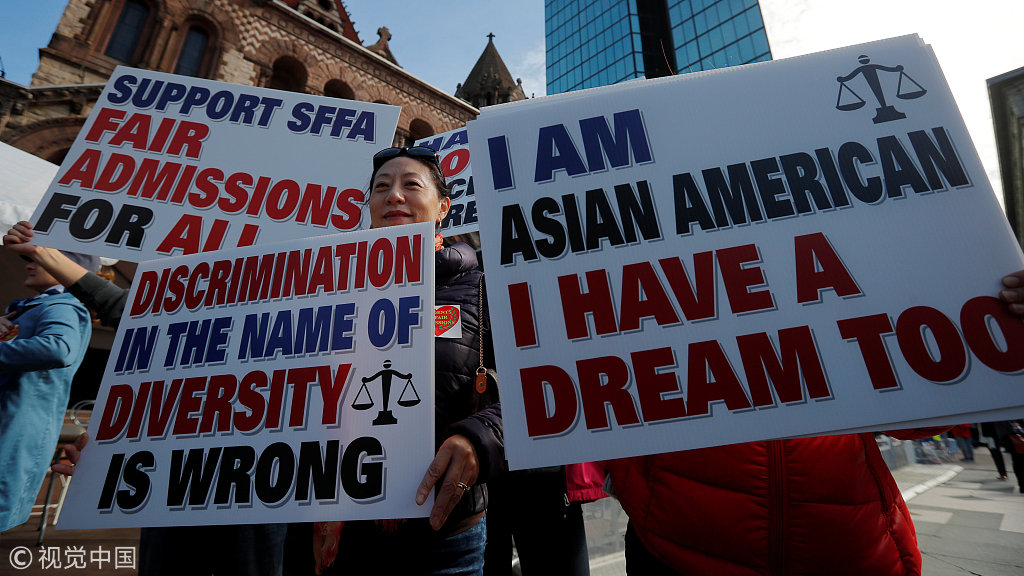Spotlight on race-conscious college enrollment


Editor's note: In an ongoing trial that began on Monday, Harvard University is accused of discriminating against Asian-American students in order to limit how many it admits. Three experts share views with China Daily's Yao Yuxin on how the case reflects different perceptions of education and equality in the United States. Excerpts follow:
Personal ratings the bone of contention
US universities are used to using affirmative action to achieve campus diversity, and the proportion of Asian-American students is usually limited to under 20 percent, although the highest is around 40 percent. A diverse campus enables a university to keep the social balance.
It is well known that Asian-American students excel at getting good grades in class, but an excellent academic performance on its own may not accord with a college's criteria for an eligible candidate. Considering other talents of applicants, like their sense of social responsibility, as Harvard does, is reasonable.
Many universities including Harvard are trying to achieve a comprehensive evaluation of those seeking admission, and "personal ratings" play a role in this. These personal ratings also cause the most dispute as Asian-American applicants complain about getting the lowest scores among all social groups. Certainly, subjectivity is inevitable in "personal ratings", but this does not necessarily equate to discrimination.
Chu Zhaohui, a researcher at the National Institute of Education Sciences


































